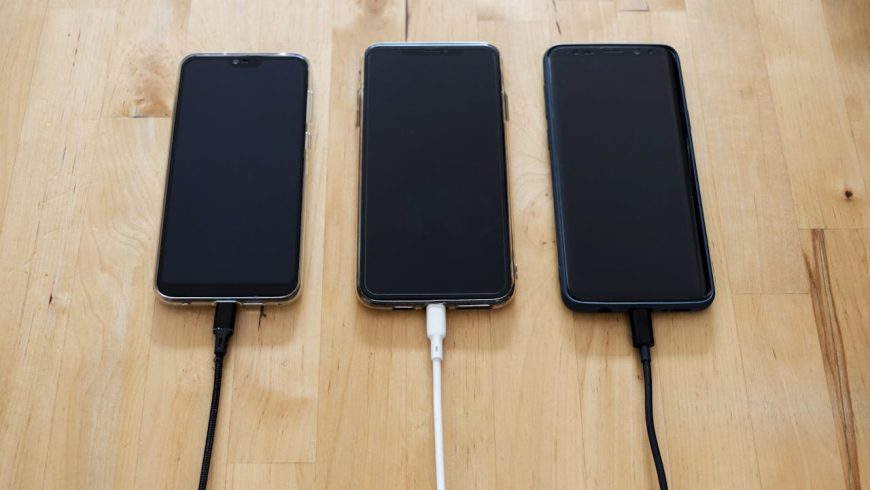We all love our college campuses-buzzing with energy, late-night study sessions, and spontaneous pizza parties. But have you ever stopped to think about the environmental footprint of your daily campus life? From the mountain of disposable coffee cups to the lights left on in empty lecture halls, our habits can unintentionally take a toll on the planet.
The good news? You don’t have to be a climate scientist to make a difference. In fact, with a few simple tweaks to your everyday routine, you can help build a more sustainable campus, one habit at a time. Ready to go green without going broke or bored? Let’s dive into these 8 easy, practical, and impactful tips.
1. Go Digital Whenever Possible
We live in a world where almost everything is just a click away, so why are we still wasting piles of paper on assignments and class notes? Going digital doesn’t just reduce clutter in your backpack; it significantly cuts down your environmental footprint, too.
These days, students don’t need to waste tons of paper drafting and re-writing essays filled with mistakes or unclear formatting. Instead of printing multiple rough drafts, you can use free digital tools or turn to an online essay writing service, where professional writers and editors offer guidance in a fully digital space. This not only saves paper but also helps you produce cleaner, more polished work without unnecessary printing.
Plus, using tools like Google Docs, Notion, or Microsoft OneNote makes it super easy to organize your notes, share group projects, and back up important documents-all without printing a single page. The more we rely on digital solutions, the closer we get to building a truly paperless, eco-conscious campus.
2. Embrace Reusables: Cups, Bottles, and Bags
Let’s start with the basics. How many times have you grabbed a plastic water bottle between classes or accepted a plastic bag for just one notebook? It’s convenient, sure, but it adds up fast.
Why Reusables Matter
Using a reusable water bottle or coffee tumbler might seem like a small act, but imagine if every student on campus made the switch. You’d cut down thousands of single-use plastics each week. Plus, many campus cafés offer discounts for bringing your own mug-so it’s eco-friendly and budget-friendly.
Quick Wins
- Carry a foldable tote bag in your backpack for spontaneous grocery runs.
- Invest in a sturdy, insulated water bottle and skip the vending machines.
- Keep reusable cutlery and straws handy, especially if you eat on the go.

3. Reduce, Reuse, Recycle (In That Order)
We’ve all heard the 3 R’s, but there’s a reason they’re in that specific order. Reducing comes first for a reason-it’s the most impactful.
Campus Recycling Programs
Most universities have recycling bins scattered all over campus, but using them correctly is key. Contaminated recycling (like a greasy pizza box or food-soiled wrapper) can ruin an entire batch. So when in doubt, check the signs or your campus sustainability website.
Reuse and Share
- Need a new textbook? Try book swaps or digital versions before buying new.
- Donate or trade clothes during campus swap events.
- Repurpose old notebooks or use the blank sides for scrap paper.
A sustainable campus starts with mindful decisions-so next time you go to toss something, ask yourself: Can this be used again?
4. Walk, Bike, or Bus: Greener Ways to Get Around
Cars are convenient, but they’re also a big contributor to carbon emissions. Luckily, most campuses are designed to be walkable, and there are often better, greener ways to get from point A to B.
Ditch the Car (When You Can)
If you’re living on or near campus, skip the car and walk or bike instead. Not only is it better for the planet, but it’s also good for your health-and your wallet.
Public Transportation Perks
Many universities offer student discounts on bus passes or even free shuttle services. So why not save gas money and avoid parking drama?
Pro Tip: If biking is your thing, look into campus bike-sharing programs. They’re affordable, convenient, and perfect for quick trips.

5. Eat with the Planet in Mind
What you eat can have a surprisingly big environmental impact. But don’t worry-you don’t need to go full vegan overnight to make a difference.
Choose Plant-Based When You Can
Plant-based meals use fewer resources and produce fewer emissions. Try a “Meatless Monday” or experiment with plant-based options at the dining hall. Many campuses are now offering vegan and vegetarian options that are both tasty and satisfying.
Reduce Food Waste
Take only what you’ll actually eat in the dining hall. Store leftovers when eating out instead of letting them go to waste. And if your campus has a composting program, use it!
Also, check out if there’s a food recovery group on campus-these student-led groups often redistribute excess dining hall food to students in need.

6. Get Involved in Green Campus Initiatives
Want to take your impact to the next level? Join a student org focused on sustainability, climate action, or eco-volunteering.
Benefits of Joining In
- Meet like-minded people who care about the planet
- Gain leadership and project experience
- Participate in cleanups, workshops, and sustainability fairs
Even if you’re not ready to join a club, attending a few events can open your eyes to the awesome work already happening on your campus-and how you can contribute.
7. Be Energy Smart: Turn It Off and Unplug

Leaving your laptop or phone charger plugged in all day? Guilty! But even in standby mode, electronics use “phantom” energy. It’s like your devices are sipping electricity even when they’re not in use.
Easy Energy-Saving Habits
- Unplug chargers and appliances when not in use
- Turn off lights when you leave a room
- Use LED bulbs and energy-efficient power strips
Many campuses are upgrading to greener buildings, but individual action still matters. Imagine the energy savings if everyone just unplugged their devices overnight!
8. Spread the Word and Lead by Example
Sustainability isn’t about perfection-it’s about progress. And one of the most powerful things you can do? Inspire others to join you.
Small Actions, Big Ripples
- Post about your green habits on social media
- Invite friends to volunteer at an environmental event
- Organize a zero-waste study group or community cleanup
Sometimes, just seeing someone carrying a reusable cup or biking to class can spark a chain reaction. Be that spark!

Your Campus, Your Choice, Your Impact
Building a more sustainable campus isn’t about grand gestures-it’s about consistent, everyday choices. Whether it’s carrying a reusable bottle, skipping the car ride, or eating more plant-based meals, your actions matter.
You don’t have to be perfect, and you don’t have to do it alone. Every student has the power to help create a greener, more mindful campus culture. So start small, stay curious, and remember: change doesn’t happen overnight-but it always starts with someone. Why not you?
Cover image: Photo by Canva PRO




